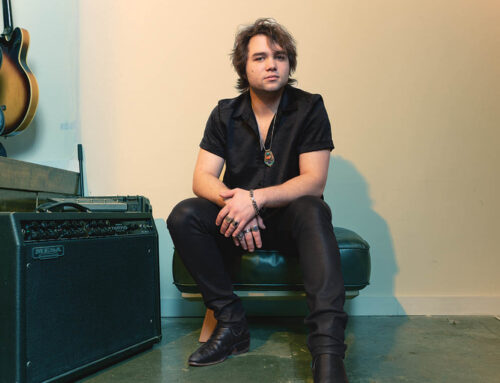THIS MONTH, AS OUR COUNTRY celebrates its 228th year of independence, many of us will give only passing thought to what the Fourth of July holiday really means. Sure we might attend a parade, fly a flag or light some fireworks, but in many cases it’s not much more than a good excuse for a barbecue and a cold one.
But there are some neighborhood residents for whom freedom has a very real meaning, because they’ve risked their lives so we could enjoy it. They’ve seen friends die, they’ve been shot at, and often they still deal with the lifelong effects of combat fighting. They are our military veterans, and these are three of their stories.
In 1966, Paul Reed was a recent Hillcrest High School graduate with a strong sense of patriotism and a yearning for adventure. A regular reader of the Stars and Stripes newspaper, he was determined to try to help those fighting in Vietnam.
“I read about it and saw it on TV, about Americans dying over there,” he says. “I just felt it was something I needed to do to serve my country.”
Reed enlisted with the airborne infantry and served with the 86th in Fort Bragg. In February 1968, he was assigned to the 173rd Airborne Brigade for a one-year tour in Vietnam.
Reed was barely on the ground in the country before he realized what he was headed for.
“A guy at the airfield came up to me, and he could see I was airborne-qualified by my wings,” he says. “When I told him what unit I was going to, he just looked at me and said, ‘I hope you like to kill.’”
He was flown to the Kontum province of Vietnam, where he dropped into some of the heaviest fighting of the war.
“There were no front lines in Vietnam,” he says. “It was 24/7, 365 days a year. We traveled every day and slept in holes in the ground every night. The whole time I was there, I never sat on a flushing toilet, saw a large town, or had a warm bath. For the first 40 days there, I didn’t get a bath at all.”
Reed says if the mosquitoes, snakes, leaches, heat and rain didn’t drive the soldiers insane, the knowledge that they could be killed at any moment might.
“It was a guerrilla war in the jungle, where you couldn’t see them, barely hear ‘em, and never knew when you were gonna get zapped. I saw people go off the deep end – have terrible psychological problems – and they had to be taken away.”
Reed spent most of the year in the jungle, and was wounded in the shoulder during battle. He finished his tour with his unit, then went home. But it was hardly a smooth transition.
“When I left, the Viet Cong were firing at our helicopter,” he says. “Forty-eight hours later, I’m sitting in my parents’ living room in front of a fireplace, with people telling me forget about it.”
Reed tried to do just that, enrolling in college and pursuing a mechanical drafting degree. But like many Vietnam veterans, memories of his traumatic experiences wouldn’t leave him.
“The infantry guys were like loaded weapons in the government’s hands, a killing machine,” he says. “But when they brought us home, they forgot to unload the weapon. We brought our anger from the battlefield home.
“I couldn’t go back to normal life. I had to be by myself. So I got a job driving trucks and roamed the country for 17 years.”
More than 20 years after returning from Vietnam, Reed says he was “at the bottom.” He couldn’t keep a job, had lost his house, was divorcing for a second time, and was in a child custody lawsuit.
“Death, to me, sounded pretty good,” he says.
Seeking a way to help, his mom gave him a box he had sent home from the war. Inside were ID cards, family photos and the diary of an enemy soldier whom Reed believed he had killed.
Reed had the diary translated and found himself within its lines.
“This was the inner man of the enemy, the real him,” he says. “He loved his family, his wife and kids and his country, and he was willing to die for it, just like me.
“I realized I had the same heart as my hated enemy. And I found that astonishing, because I had seen how barbarian they were on the battlefield.”
Reed sought to return the diary to the family of the soldier, Nguyen Van Nghia. He traveled to Vietnam to do so, and was amazed to learn that Nghia was still alive. The two met, talked and forgave each other. The experience changed Reed’s life.
“I felt like Vietnam was a curse on my life,” he says. “It took me almost 30 years to gain a new perspective on that war. When I was able to forgive my battlefield enemy, I was forgiving myself. I let go of all that pain and had a sense of peace in my life for the first time.”
Today, Reed is an author and public speaker.
“I’m not a preacher, but I try to show people the value of forgiveness, because I feel like I’m sort of an authority on it,” he says. “I think that’s my mission in life.”
Sixty years ago last month, Al Gitelman took part in the largest military invasion the world has seen. On June 6, 1944, he and thousands more stormed the beaches of Normandy, swimming, running and crawling their ways to the cliffs ahead.
Their success, which marked the beginning of the end of World War II, came after months of planning by military leaders. But Al Gitelman’s role in it started with some Brooklyn guys hanging out in the neighborhood.
“We were just some guys sitting around, and somebody said, ‘Let’s join the Army.’ We thought it’d be short stint, then we could go to college. We never dreamed you could get killed there,” he says.
An 18-year-old Gitleman left home in January 1942 to start more than two years of training. He was first stationed at Fort McClellan, Ala., then shipped out to England to train for that historic day on the beach.
Though he doesn’t offer specifics about his D-Day experience, he says the opening scenes from the movie “Saving Private Ryan” match his memories of that day.
“The first part of that movie was very accurate,” he says. “That’s what it was like.”
The battle was the first of four that Gitelman fought as his company made its way through Belgium, Holland and finally into Germany.
He was wounded three times along the way.
At one point, his squad was surrounded by Germans, and the artillery general asked for a volunteer to attempt to capture the enemy. Gitelman volunteered, and knocked out two machine gun nests and captured a German soldier.
“It saved a bunch of lives, so they gave me the Medal of Valor for that, and a Bronze Star,” he says matter of factly.
Pursuing his love of photography, he began work in a camera store after his return to the States. He then moved to Texas in 1949 to work at a photo supply company. He eventually retired from that line of work, but soon realized that retirement wasn’t for him.
“I went crazy doing nothing,” he says. When a friend asked him to join him in selling tapestries, Gitelman took him up on the offer.
Thirty year later, at 81, he still has an aversion to doing nothing. He reports every day to the Al Gitelman Tapestries showroom in the Dallas World Trade Center. And for the past 36 years, he has ridden with the Hella Shrine’s Black Horse Patrol, a drill team that raises money for children’s hospitals by performing maneuvers on horseback … at a full gallop.
A member of the Military Order of the Purple Hearts, the American Legion and the DAV, Gitelman says he’s proud of his service, but he doesn’t spend time dwelling on the past.
“I’m one of the few who doesn’t reflect on it,” he says. “I had a job to do and I did it, and it’s over,” he says.
On the morning of June 17, 1967, Allen Clark was on watch inside enemy territory in Vietnam. Part of a special forces team, the West Point graduate was camped in Dak To, there to collect tactical information – in other words, spy on the enemy.
Clark listened more than looked for signs of danger; with dawn still ahead, there was little he could see. But the enemy was out there.
The Viet Cong had plans to infiltrate the camp that morning, starting with a heavy mortar barrage to the south before beginning a ground attack.
He quickly radioed the Air Force, which dropped flares around the camp so his unit would see the enemy. The ground attack was thrown back, but Clark was wounded in the process.
With enemy fire still coming in, Green Beret sergeants carried him to an underground bunker. There he lay on his stomach, drifting in and out of consciousness and unsure of his injuries. He awoke the next morning in a Vietnamese hospital to find that his left leg was gone.
He was flown to a San Antonio hospital a week later, where despite efforts to save his right leg, it also was amputated. Three days later, he turned 25.
“When you lose a part of your body, it’s extraordinarily challenging to recover your life, your self,” he says. “It took years to adjust mentally and emotionally. It’s been a 37-year journey, and in some ways I’m still adjusting to it. I feel sadness every day. All combat vets do. But it’s not debilitating.”
After the war, Clark went on to earn his MBA from SMU, beginning his career in finance as Ross Perot’s investment manager. He worked in the private sector for several years before becoming involved in public service and politics.
He served as Special Assistant for Administration to Texas Gov. William P. Clements Jr., and was appointed to two Veterans Affairs (VA) positions under the George H.W. Bush administration. Today he is the public affairs officer for the VA North Texas Health Care System, where he works with veterans every day.
Clark received a Silver Star for gallantry in action, a Purple Heart and other medals for his work in the service, and says he has no regrets about serving in Vietnam, despite the changes it brought to his life.
“I’m a proud West Pointer and American soldier,” he says. “I’m a major proponent of preserving freedom and fighting the bad guys … no ifs, ands or buts about it. I’ll never regret being a soldier and serving my country.”
Clark says his Christian faith made the difference for him in dealing with his injuries and experiences from combat.
“My faith in the Lord has helped me put the war in perspective,” he says. “It’s not mind over matter; it’s strictly spiritual.”
He shares that faith through his ministry, Combat Faith, reaching out to veterans with Sunday school classes, a cable television program and his Web site, combatfaith.com.
“Having to go to war is a very, very traumatic experience in a man or woman’s life, something that you never fully recover from,” he says. “The sights, the sounds, the sadness never leave you.
“Our country owes a great debt to the people who have put themselves in harm’s way, and I’m not sure enough people understand that.”






